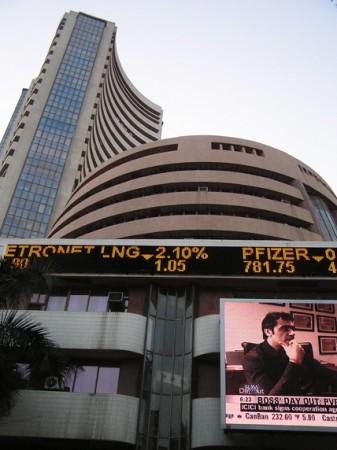
Asian shares and the dollar rose on Tuesday as tensions in Ukraine were eclipsed by a strong night on Wall Street, with Indian equities rallying hard on hopes an election victory for the business-friendly opposition party would spur a revival in the region's third-biggest economy.
MSCI's broadest index of Asia-Pacific shares outside Japan advanced 0.6 percent and Tokyo's Nikkei gained 1.9 percent.
The Dow and S&P 500 hit record closing highs on Monday, as strong corporate results and an improving economic outlook spurred a broad rally on Wall Street.
Indian shares rose 0.9 percent to hit a new record high, boosted by exit polls predicting India's business-friendly opposition party winning in the world's biggest ever elections.
Still, analysts warn against exuberance as exit polls by media organisations have proven unreliable in the past. The actual results for India's five-week long elections will be out on Friday.
"A lot of expectation-based flows have come through. Looking through the noise, if the base scenario (opposition majority) happens, two things change structurally - first, you get a pro-investment government and one that is focused on infrastructure," said Salman Ahmed, global fixed income strategist for Lombard Odier Investment Managers in London.
Moreover, "a strong government that understands the need for infrastructure should be able to get reforms in place and put in place the conditions for long-term growth," Ahmed said.
Equity markets have so far brushed off a weekend referendum in Ukraine, where pro-Moscow rebel organizers said nearly 90 percent had voted in favour of self-rule, possibly inflaming the conflict.
"Investors are so far taking (Russian President Vladimir) Putin at his word that eastern Ukraine will not be repeat performance of Crimea and don't seem too concerned about the next round of US/EU sanctions given the weakness of those offered to date," Jasper Lawler, market analyst at CMC Markets, wrote in a note to clients.
"With Donetsk now officially asking to join Russia, Putin's diplomacy will be fully put to the test," Lawler added.
The markets are also likely to be focused on industrial production and retail sales data from China expected later on Tuesday. Weak readings could depress risk-sentiment, though they may also fuel expectations for further stimulus measures from Beijing.
China's economy is growing at its slowest pace in decades, with recent data suggesting a challenging outlook over the next year.
The dollar brushed a one-week high of 102.25 yen, helped by higher U.S. Treasury yields on investor caution ahead of a slew of data this week that could paint a brighter economic picture.
The euro remained on the defensive at $1.3755, stuck close to a one-month low of $1.3745 hit on Friday after European Central Bank President Mario Draghi fired a verbal warning against the common currency's recent gains.
The benchmark 10-year U.S. Treasury note yielded 2.66 percent after hitting 2.67 percent on Monday, its highest since May 2.
The oil market remained a little more sensitive to tensions in the Ukraine, with U.S. crude steady at $100.54 a barrel after gaining 60 cents on Monday.
Three-month nickel on the London Metal Exchange surged to $21,625 a tonne - its highest since February 2012, as the threat of tougher Western sanctions on the world's biggest producer Russia compounded concerns about Indonesia's ban on unprocessed ore exports.
LME copper stayed within range of a two-month peak hit Monday on top copper consumer China's pledge last week to push ahead with a broad range of capital market reforms and on growing worries about dwindling global exchange inventories.

















